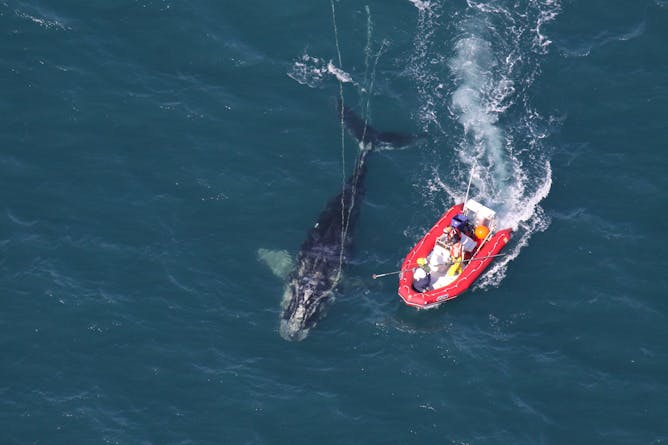|
Let’s admit it – at one time or another, we’ve all taken home pens or pencils or paper from work for our own personal use. It’s not really stealing, is it? Today in The Conversation Canada, Yannick Griep, an assistant professor of industrial and organizational psychology at the University of Calgary, explains what’s behind the research that shows 75 per cent of workers admit to stealing office supplies.
The federal government recently closed some crab and lobster fisheries in Atlantic Canada and Kimberley Davies of Dalhousie University tells us why these measures are needed to protect the right whales, which are dying off at a rate not seen since whaling was still legal.
When we think about the things we can do to maintain a healthy lifestyle, most of us don’t take into account our working and living conditions. Dennis Raphael of York University looks at the research on how living and working conditions contribute to premature deaths of thousands of Canadians and asks why politicians aren’t doing more to prevent the problem.
And finally….there’s plenty of research on addiction to drugs, alcohol, sex…but an addiction to money? Mike Sosteric of Athabasca University looks at this under-reported problem and offers some advice on how to combat the problem.
Regards,
|

Employees who experience broken promises tend to experience a series of very intense negative emotions, which can lead to a desire to dominate, retaliate and get even with their employer.
(Annie Spratt/Unsplash)
Yannick Griep, University of Calgary
Bringing office supplies home - or stealing from your workplace - may seem like a good idea when you are upset with your boss, but think again, your issues may be easier solved through communication.
|

Scientists from the U.S. National Oceanic and Atmospheric Administration approach a young North Atlantic right whale entangled in fishing gear near Cape Canaveral.
(NOAA Photo Library/flickr)
Kimberley T A Davies, Dalhousie University
After 17 North Atlantic right whales were killed in the southern Gulf of St. Lawrence in 2017, the Canadian government set new rules for the snow crab and lobster fisheries.
|

Far more than eating green vegetables and going to the gym more often, living and working conditions have a big impact on health. Saskatchewan’s new NDP leader is determined to see it reflected in public policy.
(Shutterstock)
Dennis Raphael, York University, Canada
It's not all about eating leafy green vegetables and working out: Living and working conditions have a profound impact on our health. So why are politicians avoiding taking action?
|

An addiction to accumulating money is every bit as powerful and destructive as a drug addiction.
Upsplash/Sharon McCutcheon
Mike Sosteric, Athabasca University
Wealth addiction is as powerful as any other, but instead of urging addicts to get help, we often admire them. Yet they do much more damage to the world at large than your average coke fiend.
|
Environment + Energy
|
-
Katarzyna Nowak, Durham University; Benezeth Mutayoba, Sokoine University of Agriculture; Phyllis Lee, University of Stirling; Ross Harvey, South African Institute of International Affairs
Improving livelihoods by exploring alternatives to wildlife trade would help to curb the poaching of threatened species like elephants.
|
|
Culture + Society
|
-
Laura Dales, University of Western Australia; Emma Dalton, RMIT University
An MP from Japan's governing party recently commented that single women were a burden on the state. But many young women, and men, are rethinking the lure of married life.
|
|
Health + Medicine
|
-
Oliver Mytton, University of Cambridge; Jenna Panter, University of Cambridge
Even using public transport is better for your health than travelling by car.
|
|